The Biggest Question There Is
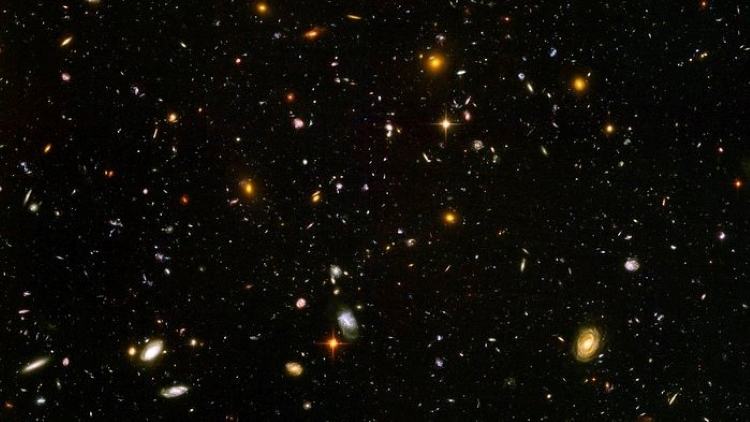
Featured image: The Hubble Ultra Deep Field reveals, in visible light, the Universe at a time of bare, astronomic splendour. Its mosaic was acquired over the course of 800 exposures (400 orbits around Earth in space and 11.3 days in time). Approximately 10,000 galaxies stud its mystical backdrop. Some are only 800 million years old. As we look at them we stare into the past to over 13 billion years ago; their light took that long to travel to us. The Hubble Ultra Deep Field is my biggest photographic inspiration, for it prompts my biggest wonders: how did any of it begin at all? (NASA/ESA)
For as long as I can remember I have posed infuriating questions. I’ve obsessed over unknowns with regard to meaning and purpose, free will, death, truth, morality, scientific knowledge and theories of everything, and religion, never completing myself into a state of satiation with answers. But one question tops them all in its fundamentality. I keep circling back to it, for the others are nothing without the presupposition of something before them.
What is?
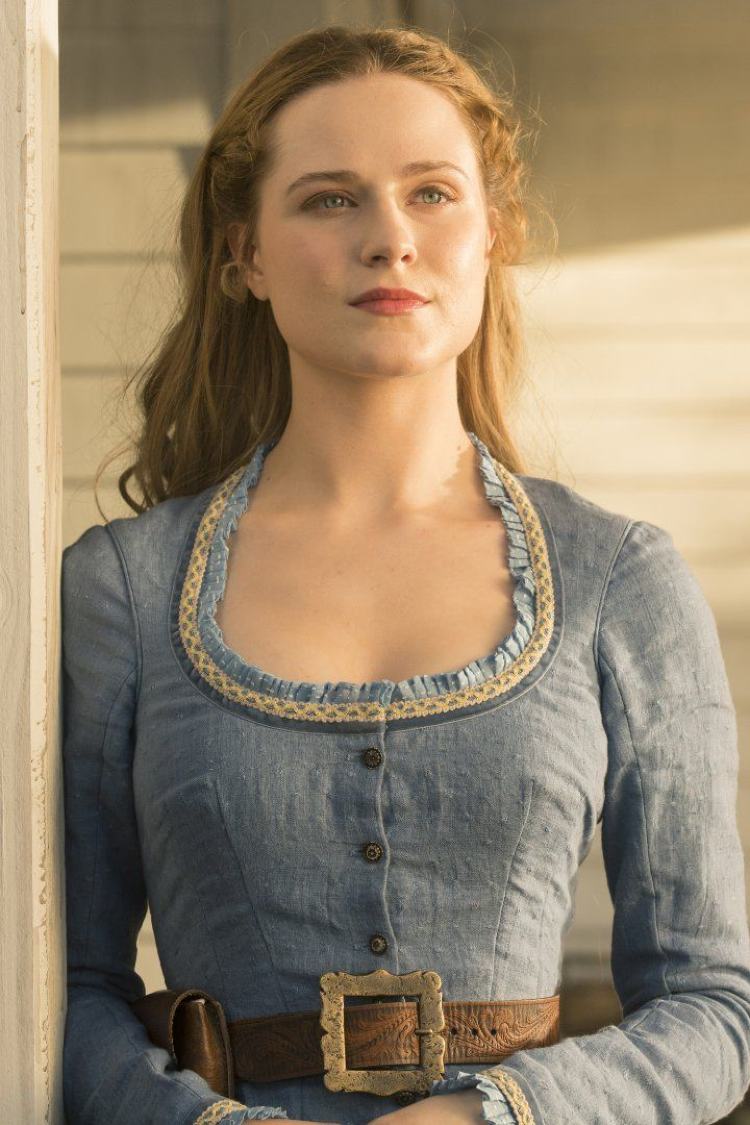
Westworld, where Dolores (Evan Rachel Wood; pictured) lives in the eponymous TV show, is artificially designed by humans. Her rival, Man in Black, says this of it: '[The world outside is a] fat, soft teat people cling onto their entire life. Every need taken care of … except one … purpose, meaning … But then I came here and I get a glimpse for a second of a life in which I don't have to pretend, a life in which I can be truly alive. How can I go back to pretending when I know what this feels like?' So I say this: Can you—a person of unestablished unified identity, an agent of unconscious desires, living on a rock in an expanding, mostly-empty universe—a construction of things—reasonably usurp his world with something realer than that? For what is real? (Warner Bros. Television Studios)
A life's wonder
As an infant I would bother my mum about almost everything, asking her anything from the origins of certain words to why we die. I never grew out of this state of mind. I would keenly question the religious worldview that was imposed on me at primary school. At secondary school, where I was once told to shut up by my business study teacher for asking questions about shares (presumably for ‘disrupting’ the slower learning of low-grade pupils), I was quieter but still annoyingly inquisitive.
A major part of my perturbed existential development was set off by certain films and songs about the end of the world I had absorbed as a child. Armageddon (1998) haunted me. The lyrics to Bon Jovi ‘It’s my life’ (‘It’s now or never; I ain’t gonna live for ever’) still reverberate in my head.
As a young adult I began to wonder why I’m me and whether any of us are unique or special given our time-limited and tiny presence in the Universe, which drew me to films such as A.I. Artificial Intelligence (2001) and 2001: A Space Odyssey (1968).
At university I found consolation in the physical explanation of things. I was fascinated with cosmology as a study of the Universe on the biggest scale there is and particle and nuclear physics, quantum mechanics, gravitation, and electromagnetism on the smallest scale there is. But I wouldn’t accept the equations teachers put forwards as bluntly formed truths about how the Universe was glued together by its fundamental properties. I always needed more: reasons why, derivations, examples of what they want, and so on.
My questions’ unknowns hurt me: What happened, if anything, in the time prior to the Big Bang? What is dark matter? What happens inside of a blackhole? What deeper explanations are there for gravitational and magnetic fields and the Higgs boson? Why are there competing and incompatible models which each assign essential but inconsistent properties to things (e.g. liquid drop model, shell model, coloured quark model, and cluster model for the atomic nucleus)? And how do we unify them across scientific domains (particle physics, chemistry, etc.)?
While I accepted that science would carry on doing a cracking job for civilization as long as we place faith in it, I became disillusioned with what it was we were probing—because, probably, we’ve never been obtaining concrete facts about anything.
My why-questions probably imposed excessive burdens onto my teachers: their jobs were to deliver descriptions of physical phenomena in scientific lexicons, as set out by their institutions, not derive the nature of reality at its most-fundamental level just for me.
Still, I would be disappointed that they couldn’t bottom-out their explanations somewhere. They’d usually finish their explanations at: ‘This is just how it is’. Inevitably, I would leave classrooms empty-handed, having set impossible targets, only wanting to ask more questions in person or send emails when I returned home.
However, while no teacher could ever have satisfied my urge to ask more questions, I would say that almost all the answers they gave were imbued with misplaced confidence in their subject. This was especially true in physics, whose academics I found to be overly faithful in their faithless subject. Duly, physics, as an area of research, stopped fulfilling my drive to help reach the boundaries of everything.
I therefore took a guileful shortcut by asking why we can’t reach boundaries. Questioning ‘fundamental facts’ about reality—this had to be my new quest, in philosophy.
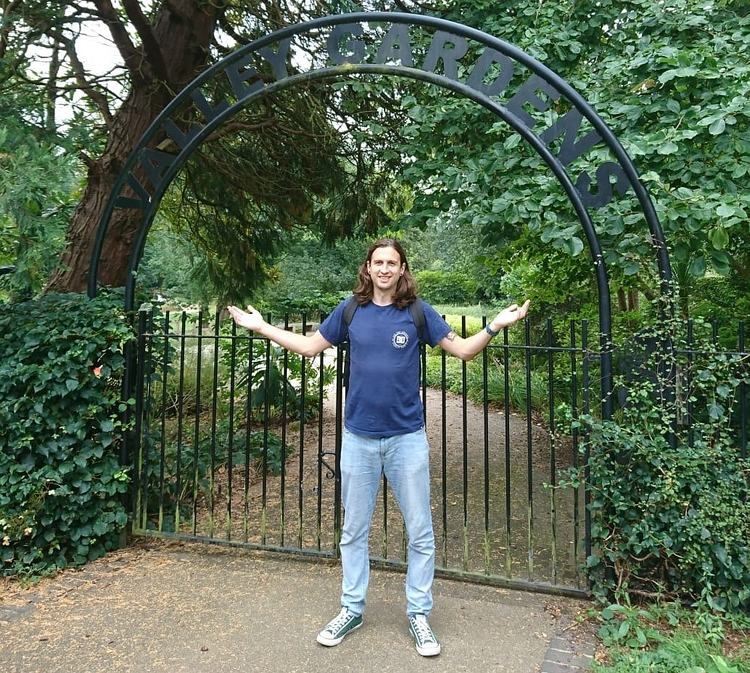
Me at the University of Southampton. I am investigating the claim that reality is a structured hierarchy, built by 'grounding' relations, such that we can give a viable account of causality (e.g. for scientific methodology). Despite no promise of compelling answers, I am sanguine in this early stage of my project: I have hope that there will be some fruits to pick (he says overconfidently).
I arrived in philosophy at the turn of 2018, particularly interested in where science and philosophy clashed. This stance led me to holding a fertile interest in metaphysics, particularly in topics such as free will and consciousness. In 2020 the journey is ‘hotting up’ more than ever before as I specialise in my PhD project. My project can only possibly make an infinitesimally small dent in a vast cosmos of research which falls within scope of ontology. Much-bigger ontological questions underlie it.
Something instead of nothing
Ontology, a part of metaphysics, is the study of being: of what, or how something, exists. I’m only on the surface of it with my research. Others continue to ask much-more-fundamental questions: What is reality? What is at its core? Is there a core? Does it comprise basic things (e.g. particles, properties, laws, levels, structure, etc.)? How do we experience it? Does it differ from a dream or the possible worlds we could be inhabiting on another timeline or another dimension? How can we tell?
However, one question connects them all. The biggest ontological question there is, I think, which connects all of these questions, is this: why is there something instead of nothing?
There is something. Indeed, here we are, doing something. But why? Every ontological question we pose from hereon is predicated on the idea of a reality when there could have been none at all. Though it’s quite difficult—even contestable—to talk about nothing. As soon as we declare something about it we admit an existence. We give nothing shape: for example, by conferring to it the existence of a property.
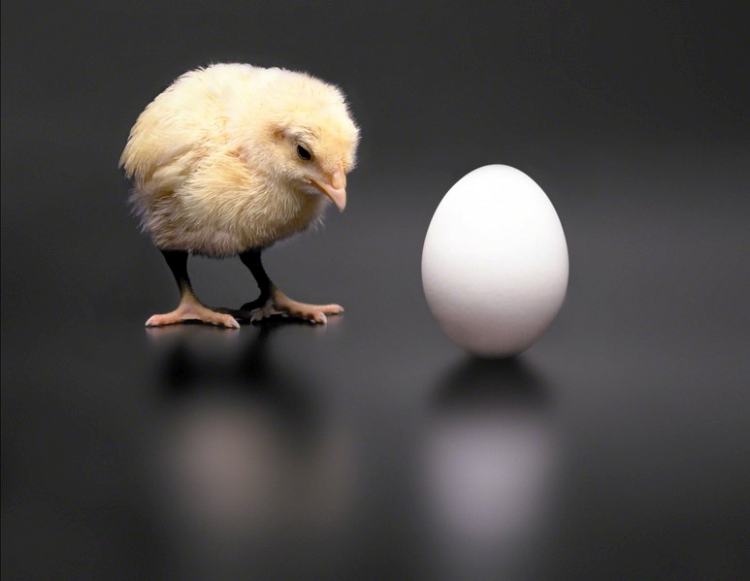
Which came first: the chicken or the egg? Forget it. Both are somethings. One may suppose, as pre-Socratic Greek philosopher Parmenides did, that even to describe nothing (e.g. in notions such as emptiness, vacuity, and possible worlds) is to declare something about existence (i.e. somethingness). Alternatively, while Parmenides et al considered it self-defeating to talk of nothing, Greek 'atomists', such as Democritus, welcomed talk of the void. In fact, they claimed there are 'only atoms and the void': atoms are compositions of the void itself, ruled by ideal laws. In this ontology the void is (existent). But, then, aren't we back at the start? (Dennis Novak)
In epistemology René Descartes inspired the idea that existence must be proven. Nothing, of course, cannot reach this bar: by definition, nothing is an absence of existence.
Nothing—a denial of being altogether—would have been simpler and easier. But, alas, we exist, in a world of chaos!
In light of there being something plenty of theologians, like philosopher Gottfried Wilhelm Leibniz, plugged into the gap a supreme, self-explained being to explain it all. Everything is a gift or somehow derived from God, let’s say.
Saint Augustine, also religious, was more conservative than this, arguing we should sit in the middle, between something—a point we have not reached—and nothing—a point at which nothing can be started, even conceptually.
Of course, many disagree. A legion of today’s popular physicists, including Lawrence Krauss and Jim Al-Khalili, don’t see it as a problem that there was once nothing. For example, they invoke quantum mechanics of the void to explain how the Universe arose naturally from vacuum, using concepts such as virtual particles and imaginariness. Stephen Hawking, meanwhile, described the possibility of there being no end and no beginning: a universe out of nothing, no notion of time, no spatial boundaries. Asking what came before the Big Bang ‘would be like asking what lies south of the South Pole’. In contrast, Baruch Spinoza and Albert Einstein favoured only something in their theories, through God (between the infinite and the finite) and as nature (cosmic order) respectively.
Others, more sceptical in their approach and equipped with some form of the Principle of Sufficient Reason, attempt to describe intelligible facts about the Universe but concede that these facts are grounded in untouchable groundless facts that can never be explained—religiously, scientifically, or by some other means. They are brute, ‘tout court’ facts of reality. (Whether this is satisfying or vexing, I cannot decide. Although, this in itself is vexing.)
Mathematics is ontology
Alternatively, perhaps mathematics can save us from the void. Pertinently, Arnold P. Hinchliffe wrote the following:
So is mathematics the only study wherein we can say there is?
One take, which I’m particularly fond of at the moment and whose thesis belongs to mathematics, is the philosophy of Alain Badiou. Badiou builds a mathematical framework between nothing (the truth of the void) and something (the knowledge of a situation). The ontological conditions of reality are purely mathematical, he says. Only on their bases is philosophy ordained ‘to the care of truths’.
Using set theory, Badiou claims that something is logically tied to nothing without claiming there is a void because the void is not. As per Badiou’s analysis, nothing always mediates a situation, ensuring events are consistent with themselves and traces to it are erased in presentation. He is an ontological pluralist who argues that reality is fundamentally multiple, infinite, and inconsistent. It isn’t organised in a single way. We experience sets of entities and qualities and happenings, in science, in politics, in love, and in art.
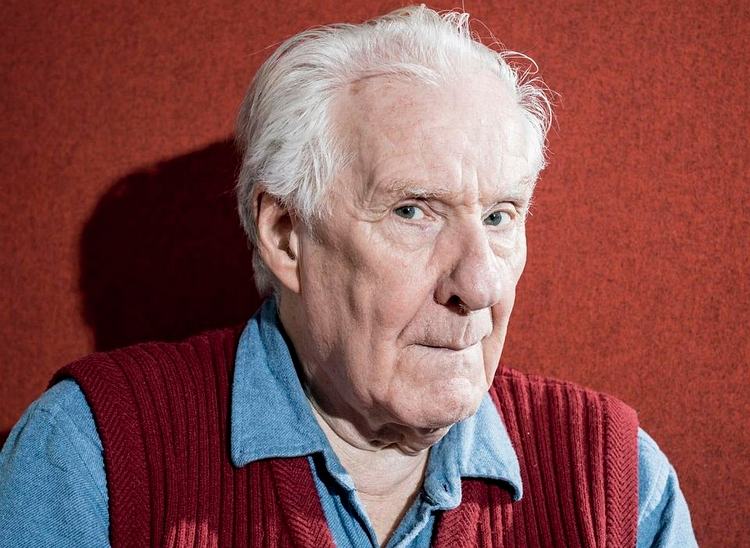
Alain Badiou, in his magnum opus Being and Event, borrows Plato's dream metaphor to help argue that mathematics is ontology. Dreams are constructed in sleep, the metaphor goes. Sleep stops; the dream stops. But no matter how closely we look at dreams' narratives we see multiplicity: an enormous story which actually grows in size the more we inspect its origins. And how are dreams (something) ontologically grounded in sleep (nothing)? Badiou explains that events are sutured to themselves under one narrative. And as soon as we grasp the entirety of the dream in a thinkable, ontological structure, the connection to sleep is shattered by discursive, wakeful thought. Exactly how the void provides the sutures we cannot say, for it lays out and removes the structure of its operation. (Source)
Though the void is a non-being, it is every situation’s ground and has a null set, Ø, at its heart (no given set has any elements in common with it). The void therefore sits below what is presented under an ‘ungraspable horizon’—a total, unprovable absence which is always necessary to avoid a chicken-or-the-egg situation about existence:
Many will think of Badiou’s work as mathematical magic—a logically born conjuring trick for the existence and inexistence of things. I can see why.
The dislike of even building nothing into ontology goes back a long way. While Aristotle, for example, toyed with the idea of nothing (i.e. non-being) as an ontological category relative to being in nature (local movements and so forth), he refuted it in the end. For one, what is it? Is it a vacuum, as Blaise Pascal (another scientific theologian) believed?
Aristotle argued that local motion would be impossible in a void (i.e. space). How can we claim that body is moving with respect to nothing (which we have declared as unthinkable)? It would move through space with no truly defined place or measurable speed. And if I drop it through nothing, it will travel at infinite speed with nothing to resist it.
‘οὕτως ἢ πάμπαν πελέναι χρεών ἐστιν ἢ οὐχί,’ wrote Aristotle in Physics: something must either be created altogether or not created at all. Ex nihilo nihil fit: nothing comes from nothing. ‘Nature abhors a vacuum’. Instead of space—that dark and cold absence—he consequently favoured an aether, a material that fills the space between objects (later disproved by the Michelson-Morley experiment).
Badiou, though, reckons that Aristotle was agonisingly close to meeting his own solution, despite the latter’s fierce dislike of the void. All Aristotle had to do was admit that the void has no place, for it is an unlocalisable point which is uniquely everywhere, logically beneath what is presented and unpresented itself.
But, Badiou has to assume, mathematics is real and discoverable as opposed to being a human invention. Is this true?
A human reality
One more philosopher I have to mention in this discussion is Martin Heidegger, who thought many of these philosophers missed the mark completely. Their reasoning was a pale and distorted abstraction; their metaphysics led us to the point of nihilism, wherefrom the question of being was obliterated.
Firstly, Thomas Hobbes, Descartes, and many others got it wrong when they claimed that a thinking human subject, who mentally represents the world, exists separately from it. Likewise, scientific realists were misguided in the way they thought the world was composed of things—objects, like tables and chairs, whose existences they ascribe on the bases of other existences, right down to their relatively large subatomic spaces.
Heidegger claimed existence depends on phenomena: we experience the world phenomenologically and exist in an interstitial space with it. He asked: how is it determined that we experience, or mentally represent, ‘things themselves’? We don’t, he said. We only access Sein (‘being’) through Dasein (‘being there’), the mode of being through which we experience the world as it really is, not as mere appearance, and make it intelligible.
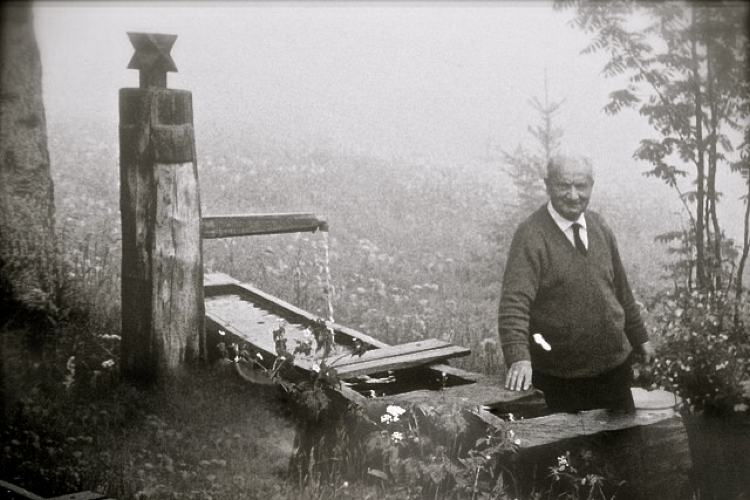
Martin Heidegger in the Black Forest, the location of the cabin he wrote his phenomenological texts in. Heidegger's philosophical stance was radical in that he turned his back on analytic philosophy, which, in the 20th century, was already embedded in Western materialism, natural sciences, and logic. In this respect Heidegger is considered more of a post-continental philosopher. Badiou, who dislikes this analytic-continental divide (I do, too), could be considered a continental philosopher, albeit as a metaphilosopher.
Heidegger thus disliked the idea that a human being is distinctly a mind or a body or a combination of both: it is a whole entity. Sure, the material world is there. But our descriptions of human nature will always be non-exhaustive if we fail to account for our privileged human experience of it.
So what does exist in this experience? First, said Heidegger, we have to take a step back because we usually presume what ‘exist’ means.
We frequently favour the routines of Das Nichts (‘the nothing’). Yet, as human beings, we can consider this question properly: existence is strange and uncanny and there to be questioned. In fact, only we can consider it, albeit too infrequently.
Heidegger reformulated existence in light of this crisis. He taught us that we can lead our lives; interpret ourselves; reach a unity of being in that we—me, you, and everything else—are all presently in existence in a common being. But, in being, we have to be interested in and learn to live for ourselves, not live through unfree everydayness.
As human beings we can unveil the contexts we’ve each been thrown into with a universal perspective; appreciate life’s brevity; contemplate the individual meaningfulness and usefulness of things; and grow into the possibility of an authentic existence. The world that is individually ours is one that makes possible the presence of beings alongside us in the world, obliterating Das Nichts in favour of something.
